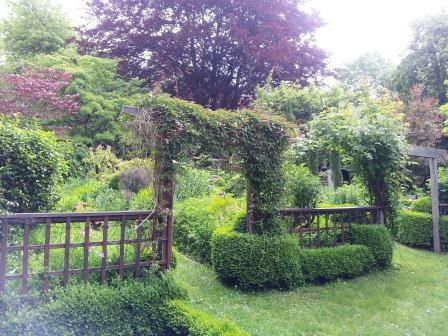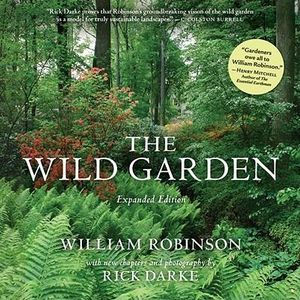Which Garden Designers preceded Edna Walling's Green Gardens?
- Jon Ruwolt
- Mar 2, 2019
- 3 min read
Updated: Aug 12, 2019
Garden Historian Chris Betteridge wrote in the final chapter of "Towards the Dawn" (Federation Architecture in Australia 1890-1915) that Melbourne's Marilyn McBriar in her unpublished thesis (of 1980) had analysed a selection of Melbourne gardens of the Federation period, and concluded there were two main styles of Garden design in the Federation Period: (but we now recognise three styles)
1. The old-fashioned Formal style, promoted by renowned author William Robinson (UK) and in Australia by famous designers William Guilfoyle (Victoria's famous Botanic Garden designer), and Charles Bogue-Luffman, who built up the successful Burnley School of Horticulture in Victoria.

2. The Natural, Informal or Landscape style favoured by expert Melbourne Arts and Crafts trained architect Walter Butler. and later championed by the famous designer and author Edna Walling.
Interestingly, all these garden gurus were born in England, and we can thank Victoria gold-rush wealth for their emigration to Australia to improve their futures.
The third style we now recognise is of course, Mixed style of both Formal and Informal.
I have pulled together all the available information about Federation Gardens and put that together at the page: https://www.federation-house.info/federation-gardens.
Style indicators of formal Federation gardens:
Artificial form of garden.
Garden forms a set of outdoor rectangular rooms to the house, often with use of terracing to accentuate the house predominance.
Sense of enclosure through walls, hedges, fences, trellises, pergolas, arches, etc., as spatial dividing design components.
Land manipulation artificial in appearance with straight lines, defined angles, sunken gardens.
Formal Style is currently favoured by the celebrated society landscaper Paul Bangay.
Style indicators - informal Federation garden style

Garden imitates nature.
Garden embraced or framed the house, coming up to the edge, with terracing often concealed; house given the appearance of being down in the garden.
Sense of seclusion often with concealed variable boundaries.
Garden divided by groupings of plants, with rare use of hedges, terracing on steep slopes, and irregular and asymmetrical garden spaces.
Respect for contours, or on flat sites earth manipulation to create interest.
Lawns irregular in shape, winding, often mysterious with occasional tree planting in the lawns.
Paths generally curved.
The Natural style was championed by Victorian Edna Walling, a graduate of Burnley College. Click through to the best website about Edna Walling. Trisha Dixon has an excellent book on Edna Walling Gardens: "Gardens in Time: In the Footsteps of Edna Walling" - find it second-hand here.
Garden Historians identify this Natural Style as influencced by Arts and Crafts influences. More about Arts and Crafts Gardens on the page Federation Gardens.
The page "Federation Gardens" at Federation-House.info lists ten influential garden designers in the Federation era, the last being contemporaries of Edna Walling:
Walter Bagot (SA) - heard of 'Woods-Bagot' Architects?
Walter Richmond Butler (VIC) - THE Society architect of the Federation era
William Robinson - English author of the influential book "The Wild Garden" - newly expanded by photographer Rick Darke - find it in a bookshop, or order here from Booktopia. Watch Rick Darke's video at YouTube or at "Federation Gardens".
Gertrude Jekyll (rhymes with 'treacle') (Munstead Wood UK) - The Ace garden designer, author and talented artist too. Worked with Lutyens.
William Guilfoyle (VIC) - Expert Planthunter and designer of Melbourne's Botanic Gardens and other significant private gardens.
Charles Bogue-Luffman (VIC) - Principal of Burnley Horticultural College
Robert Haddon (VIC) - "Art Nouveau" architect, artist and landscaper
Edna Walling (VIC) - Australia's answer to Gertrude Jekyll
Elsie Cornish (SA) - landscape gardener, was born at Glenelg SA.
Olive Mellor (VIC) - First 'Instructress in Horticulture', taught both Walling and Cornish.

There is much more to know about Federation Gardens, so click through and have a wander through my presentation.
One of my original observations in this subject is that Federation Houses normally had at least one palm tree in their garden. Follow the suburban palm trees to find Federation Architecture in any city or town in Australia! (Ditto for Pepper Trees).
Regards
Jon




